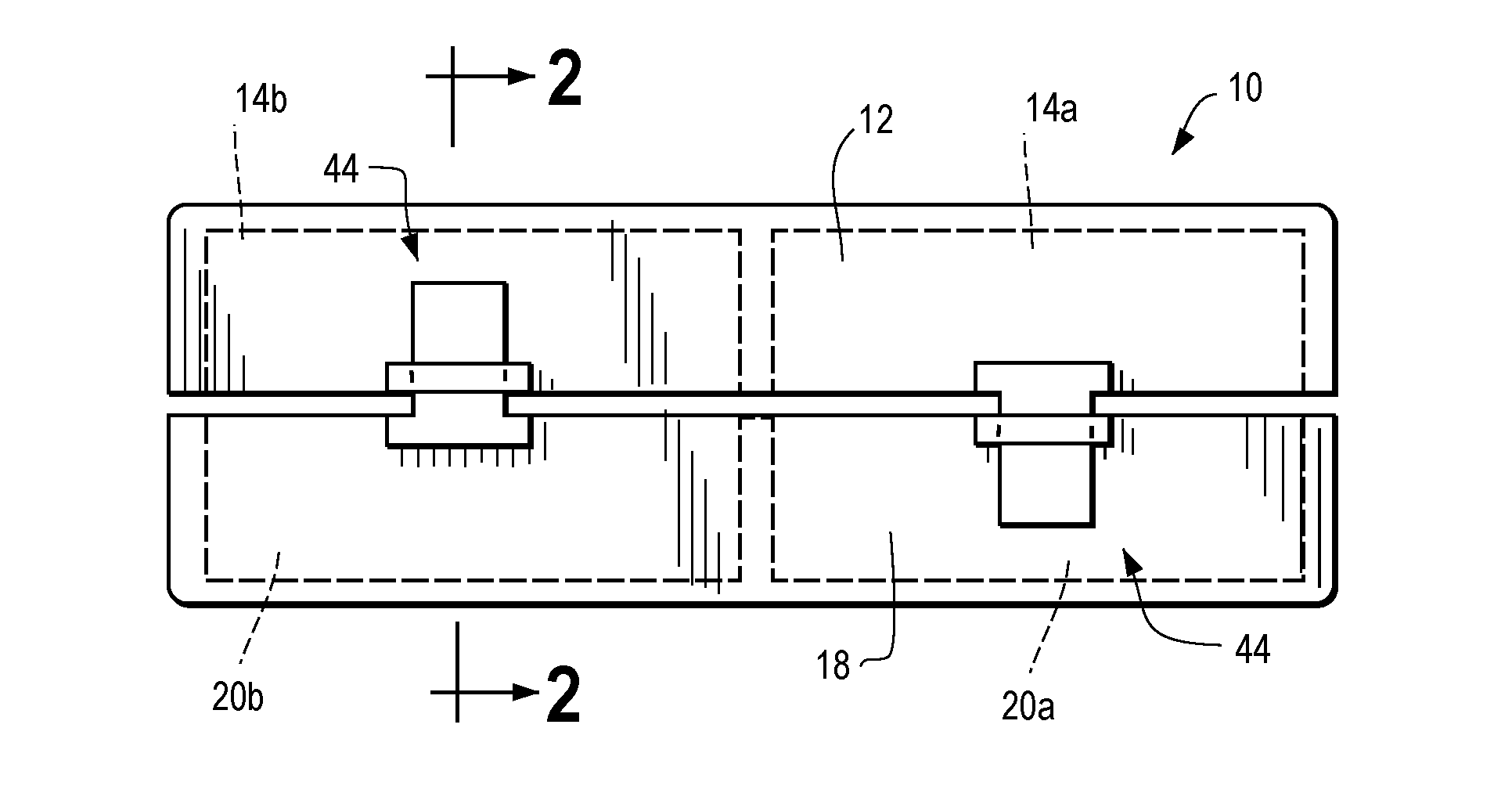Portioning and storing foods
a technology for storing foods and food preparation, applied in the field of distributing and storing foods, can solve the problems of adding another burden on the food preparer, time-consuming and difficult for the individual consumer, and reducing the efficiency of meal preparation, so as to facilitate the step of dividing the divisible mass of food
- Summary
- Abstract
- Description
- Claims
- Application Information
AI Technical Summary
Benefits of technology
Problems solved by technology
Method used
Image
Examples
Embodiment Construction
[0021]While the present invention may be practiced with any divisible food, the inventor has found most frequent use with ground or diced meat, a plurality of chicken parts and soups. Accordingly, the process and apparatus will be described as used with ground meat.
[0022]Two pound packages of ground beef can often be purchased from retail stores at unit cost substantially lower than if purchase in one pound packages. Two pounds of ground beef is about four times larger than generally used by a one or two person household for a single meal, so the inventor has provided a frame with four pairs of cavities to produce four portions from two pounds of ground beef. The frame is illustrated at 10 in FIGS. 1-3, and has an upper part 12 with four cavities 14a, 14b, 14c and 14d extending from a first plane 16. The frame also has a lower part 18 with four cavities 20a, 20b, 20c and 20d depending from a second plane 22. The cavities are arranged in confronting pairs, cavity 14a confronting cavi...
PUM
 Login to View More
Login to View More Abstract
Description
Claims
Application Information
 Login to View More
Login to View More - R&D
- Intellectual Property
- Life Sciences
- Materials
- Tech Scout
- Unparalleled Data Quality
- Higher Quality Content
- 60% Fewer Hallucinations
Browse by: Latest US Patents, China's latest patents, Technical Efficacy Thesaurus, Application Domain, Technology Topic, Popular Technical Reports.
© 2025 PatSnap. All rights reserved.Legal|Privacy policy|Modern Slavery Act Transparency Statement|Sitemap|About US| Contact US: help@patsnap.com



